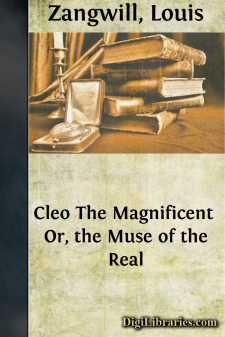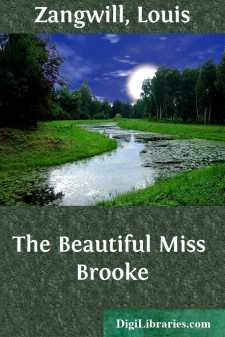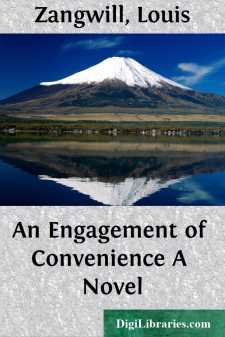Categories
- Antiques & Collectibles 13
- Architecture 36
- Art 48
- Bibles 22
- Biography & Autobiography 813
- Body, Mind & Spirit 142
- Business & Economics 28
- Children's Books 17
- Children's Fiction 14
- Computers 4
- Cooking 94
- Crafts & Hobbies 4
- Drama 346
- Education 46
- Family & Relationships 57
- Fiction 11829
- Games 19
- Gardening 17
- Health & Fitness 34
- History 1377
- House & Home 1
- Humor 147
- Juvenile Fiction 1873
- Juvenile Nonfiction 202
- Language Arts & Disciplines 88
- Law 16
- Literary Collections 686
- Literary Criticism 179
- Mathematics 13
- Medical 41
- Music 40
- Nature 179
- Non-Classifiable 1768
- Performing Arts 7
- Periodicals 1453
- Philosophy 64
- Photography 2
- Poetry 896
- Political Science 203
- Psychology 42
- Reference 154
- Religion 513
- Science 126
- Self-Help 84
- Social Science 81
- Sports & Recreation 34
- Study Aids 3
- Technology & Engineering 59
- Transportation 23
- Travel 463
- True Crime 29
Cleo The Magnificent Or, the Muse of the Real
by: Louis Zangwill
Description:
Excerpt
CHAPTER I.
It was past midnight, and both men were smoking leisurely by the study fireside. Morgan Druce sat just on the edge of a low chair, his long, slim body bent forward, his clean-shaven boyish face well within the glow of the fire. Though he appeared to be looking at it, he was only conscious of its warmth.
Robert Ingram, middle-aged and bearded, lolled back in sensuous comfort. "The long and the short of it is," he resumed, "you've a soul-crisis on just at present. Crises are bad for the digestion, and I took care to grow out of them long ago."
"Our temperaments are very different," said Morgan.
"That's what makes your case so difficult to meet," returned Ingram. "It's your infernal temperament. One never knows how to take it. In fact, you're the sort of person in whose existence I never really believed; for though, as you know, I once had ideals and a literary conscience, I was always aware they would go as soon as I had a market for everything I could manufacture. You are the genuine incorruptible artist, to whom art is sacred. I really don't know whether to be doubtful of my cynicism or your sanity."
"That my case is a pretty bad one I've already admitted," put in Morgan.
"Now, if you were only some poor devil who was alone in the world," went on Ingram without heeding his remark, "I could take you in hand and make something of you, for you've quite brains enough. Poor devils are generally more reasonable in their views than you, even when they're geniuses. You simply keep on wearing out your heart day after day. Why? For fame? What is it worth? Well, I won't answer the question—I deal quite enough in platitudes."
"You don't understand, Ingram. What do you really know of me?"
"Well, if I don't know you by this time, you must be an uncommonly deep person—or perhaps I am an uncommonly shallow one."
Morgan Druce did not answer. His last remark had been more of a reflection than an interrogation. What did Ingram really know of him, he asked himself again, despite the five years of the indefinable relation between them? Admitting that the man beneath the cynic was kindly and sympathetic, yet he could not but be aware that Ingram's treason to the aspirations of his youth had destroyed the finer edge of feeling. His vision did not respond to subtler vibrations; his judgment was broad and coarse.
Such was Morgan's intuition about Robert Ingram. He believed the man to be sincere with him and he trusted him. And yet, as he looked up now and saw Ingram, relapsed into his luxurious arm chair, blowing rings of smoke, he seemed to detect something in his expression that filled him with a vague distrust about the genuineness of his professed interest in him. There was a sort of swagger in his whole posture, a slickness about his well-dressed, well-fed body, and a self-satisfaction in his somewhat burly face, nay, even in the manner his fat fingers held his fat cigar, that set Morgan wondering for the first time whether Ingram's attitude to literature did not in truth sum up the whole man; whether that popular novelist and dramatist could really have a place in his heart for anything that was of unimportance to his own personal existence—for a poor devil of a poetaster, for instance.
It was one of those sudden doubts that are created by a chance glimpse from an accidental new point of view; and Morgan thrust it from him as absurd and unjust. It could have no foundation, else why had Ingram responded to his appeal at the beginning? Why had he tolerated his calls all these years? Why were they talking together in that room now?
He had often been puzzled about this relation between them, though, as with his friendship with Lady Thiselton, its very strangeness and originality pleased him. His relation to that charming woman was, he felt, both indefinable and incredible; and his relation to the man beside him, though less odd, could be included neither in the category of acquaintanceship nor in that of friendship. Morgan was ignorant of Ingram's personal life, even as Ingram was ignorant of such a large fact in his own as Lady Thiselton....




